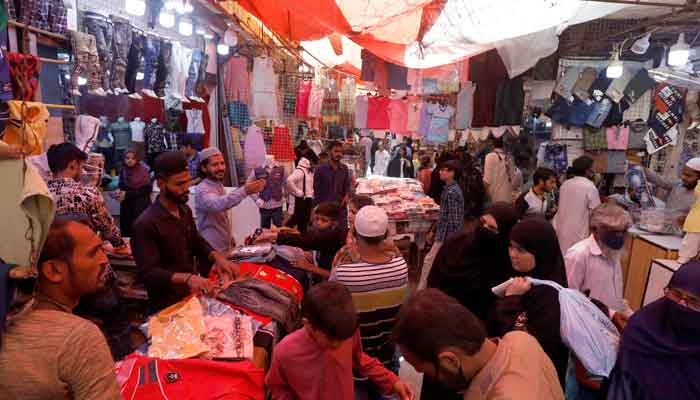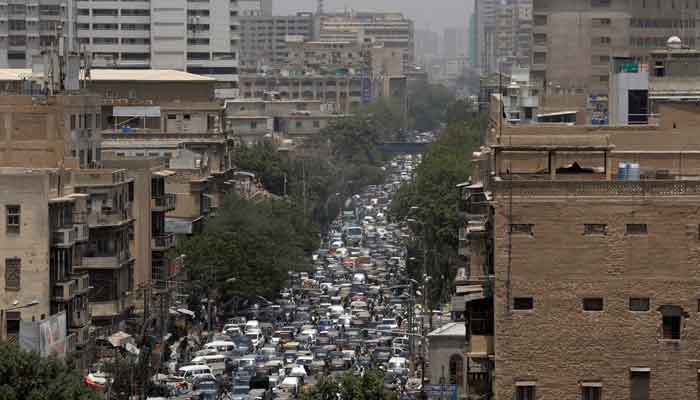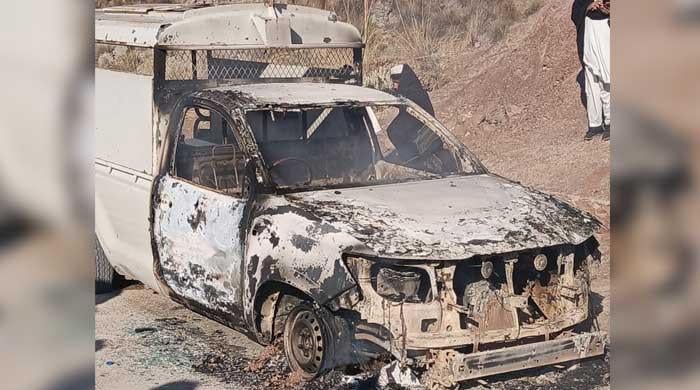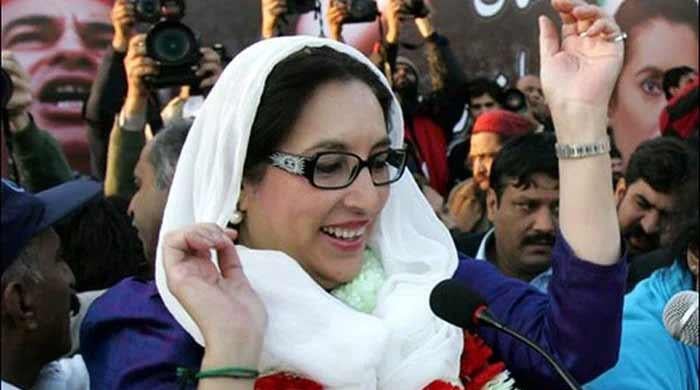People rush to markets as Pakistan eases lockdown restrictions
PM Imran announced last week to begin a phased lifting of lockdown because of the effect it was having on the economy
May 12, 2020

KARACHI: Desperate citizens rushed to markets that were opened today after months’ closure as Pakistan eased lockdown restrictions to provide relief to daily-wagers and labourers.
Prime Minister Imran Khan had announced last week to begin a phased lifting of lockdown because of the effect it was having on the economy and an impoverished workforce.
Public transport remains shut, but factories and offices have been allowed to resume operations. Restrictions on mosque attendance had already been lifted before last week's announcement.
Also read: Sindh CM ‘sorry’ to see violation of SOPs in markets
"We opened today after almost two months; I am almost bankrupt and owe workers their salaries," said Muhammad Sattar, a garment shop owner in one of the busiest commercial areas of Karachi, Pakistan's largest city and financial capital.
Areas around wholesale markets in Karachi saw heavy traffic jams, and there were also big crowds in the commercial centres of the provincial capitals of Lahore and Quetta.
'What's the point?'
However, there are signs that Pakistan's outbreak is accelerating. Of its 667 deaths from the coronavirus, around 200 have been registered over the past week, and there are almost 31,000 confirmed infections.
PM Imran justified easing the lockdown by saying: "We know we’re doing it at a time when our (infection) curve is going up ... but it is not increasing (as fast) as we were expecting."
But he said the virus could run out of control if people did not take precautions.

Faisal Subzwari, a leader of a political party allied with Khan, tweeted his frustration with many citizens:
"If 99%, 95% of shopkeepers and buyers are not wearing masks, what's the point of talking about other precautionary measures?"
Seal shops not following SOPs
Speaking to Geo News anchor Shahzeb Khanzada, All Karachi Tajir Ittehad Chairperson Atiq Mir admitted that the shopkeepers and customers did not follow the instructions given.
“You are right in saying that government’s SOPs were not implemented today,” Mir responded when asked to comment on the situation witnessed in the markets.
“We were aware of the situation seen today. You know, shops were opened after a long time and people thronged to markets because of the shortage of time in Eid-ul-Fitr.
“Although we had committed to the government, it was impossible to ensure implementation of safety measures due to massive rush in the markets,” he said.
The traders’ leader said he has told the provincial authorities to seal shops that are not following guidelines.
'Situation going from bad to worse'
Sindh Education Minister Saeed Ghani said the government was reluctant to open markets and tried to persuade traders that the move could prove dangerous.
The minister said it was everyone’s responsibility to adhere to the SOPs. “It is humanly impossible to force implementation. I am very much concerned as things are going from bad to worse.
“People should understand that what we are saying is in their own interest,” Ghani added.
Responding to a question about opening malls instead of small markets since it was easier to implement SOPs there, the PPP leader explained that "to his knowledge, the virus spread quickly in a closed and airconditioned environment.”
“Also, it was decided in the National Coordination Committee to keep shopping plazas closed," he added, stressing that people should know by now that the country could not afford to go back to conditions on February 26.
'Better to die of coronavirus'
Many doctors have said they fear the outbreak will gather pace among a population of more than 200 million and overwhelm the struggling health system.
Markets were also packed in Peshawar, the capital of Khyber-Pakhtunkhwa province, which has registered 245 dead and has the highest mortality rate in the country.
"I opened my shop for the first time today after locking it on March 24," said Ghousul Azam, adding that he had a family to support. "Better to die of coronavirus, because I can’t survive sitting at home."
Schools and large shopping malls remain shut for now, and markets will initially be allowed to operate only until 5 p.m.
But with Eid-ul-Fitr coming in two weeks, crowds are likely to increase.









